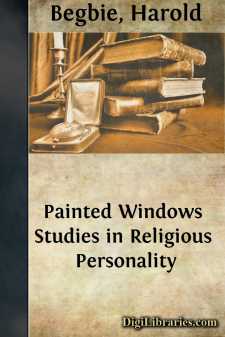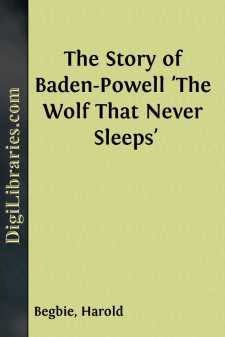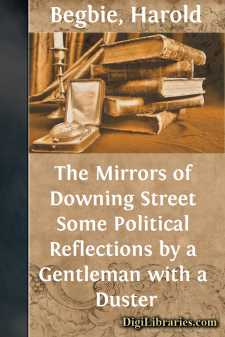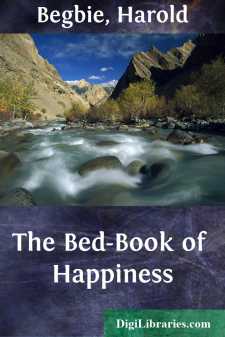Categories
- Antiques & Collectibles 13
- Architecture 36
- Art 48
- Bibles 22
- Biography & Autobiography 813
- Body, Mind & Spirit 142
- Business & Economics 28
- Children's Books 13
- Children's Fiction 10
- Computers 4
- Cooking 94
- Crafts & Hobbies 4
- Drama 346
- Education 46
- Family & Relationships 57
- Fiction 11828
- Games 19
- Gardening 17
- Health & Fitness 34
- History 1377
- House & Home 1
- Humor 147
- Juvenile Fiction 1873
- Juvenile Nonfiction 202
- Language Arts & Disciplines 88
- Law 16
- Literary Collections 686
- Literary Criticism 179
- Mathematics 13
- Medical 41
- Music 40
- Nature 179
- Non-Classifiable 1768
- Performing Arts 7
- Periodicals 1453
- Philosophy 64
- Photography 2
- Poetry 896
- Political Science 203
- Psychology 42
- Reference 154
- Religion 513
- Science 126
- Self-Help 84
- Social Science 81
- Sports & Recreation 34
- Study Aids 3
- Technology & Engineering 59
- Transportation 23
- Travel 463
- True Crime 29
Painted Windows Studies in Religious Personality
by: Harold Begbie
Description:
Excerpt
INTRODUCTION
By means of a study in religious personality, I seek in these pages to discover a reason for the present rather ignoble situation of the Church in the affections of men.
My purpose is to examine the mind of modern Christianity, the only religion of the world with which the world can never be done, because it has the lasting quality of growth, and to see whether in the condition of that mind one cannot light upon a cause for the confessed failure of the Church to impress humanity with what its documents call the Will of God—a failure the more perplexing because of the wonderful devotion, sincerity, and almost boundless activity of the modern Church.
As a clue to the object of this quest, I would ask the reader to bear in mind that the present disordered state of the world is by no means a consequence of the late War.
The state of the world is one of confusion, but that confusion is immemorial. Man has for ever been wrestling with an anarchy which has for ever defeated him. The history of the human race is the diary of a Bear Garden. Man, so potent against the mightiest and most august forces of nature, has never been able to subdue those trivial and unworthy forces within his own breast—envy, hatred, malice, and all uncharitableness—which make for world anarchy. He has never been able to love God because he has never been able to love his neighbour. It is in the foremost nations of the world, not in the most backward, in the most Christian nations, not the most pagan, that we find unintelligent conditions of industrialism which lead to social disorder, and a vulgar disposition to self-assertion which makes for war. History and Homicide, it has been said, are indistinguishable terms. "Man is born free, and everywhere he is in chains."
This striking impotence of the human race to arrive at anything in the nature of a coherent world-order, this bewildering incapacity of individual man to live in love and charity with his neighbour, justifies the presumption that divine help, if ever given, that an Incarnation of the Divine Will, if ever vouchsafed, must surely have had for its chief mercy the teaching of a science of life—a way of existence which would bring the feet of unhappy man out of chaos, and finally make it possible for the human race to live intelligently, and so, beautifully.
Now if this indeed were the purpose of the Incarnation, we may be pardoned for thinking that the Church, which has been the cause of so much tyranny and bloodshed in the past, and which even now so willingly lends itself to bitter animosities and warlike controversies, has missed the whole secret of its first and greatest dogma.
I asked a certain Dean the other day whether the old controversy between High Church and Low Church still obtained in his diocese. "Oh, dear, no!" he replied; "High and Low are now united to fight Modernists."
Therefore in studying the modern mind of Christianity, persuaded that its mission is to teach mankind a lesson of quite sublime importance, we may possibly arrive in our conclusion at a unifying principle which will at least help the Church to turn its moral earnestness, its manifold self-sacrifice, and its great but conflicting energies, in this one direction which is its own supremest end, namely, the interpretation of human life in terms of spiritual reality.
To those who distrust reason and hold fast rather fearfully to the moorings of tradition, I would venture to say, first, that perilous times are most perilous to error, and, secondly, in the words of Dr. Kirsopp Lake, "After all, Faith is not belief in spite of evidence, but life in scorn of consequence—a courageous trust in the great purpose of all things and pressing forward to finish the work which is in sight, whatever the price may be."
"The distinction between right and
wrong disappears when conscience
dies, and that between fact and
fiction when reason is neglected.
The one is the danger which besets
clever politicians, the other the nemesis
which waits on popular preachers."
—Kirsopp Lake.
BISHOP GORE
GORE, Rt. Rev. CHARLES, M.A., D.D., and Hon. D.C.L., Oxford; Hon. D.D., Edinburgh and Durham; Hon. LL.D., Cambridge and Birmingham; b. 1853; s. of Hon. Charles Alexander Gore and d. of 4th Earl of Bessborough, widow of Earl of Kerry. Educ.: Harrow, Balliol College, Oxford (Scholar). Fellow Trinity College, Oxford, 1875-95; Vice-Principal of Cuddesdon College, 1880-83; Librarian of Pusey Library, Oxford, 1884-93; Vicar of Radley, 1893-94; Canon of Westminster, 1894-1902; Hon. Chaplain to the Queen, 1898-1900; Chaplain in Ordinary to the Queen, 1900-1901; Chaplain in Ordinary to the King, 1901; Editor of Lux Mundi; Bishop of Worcester, 1902-4; Bishop of Birmingham, 1905-11; Bishop of Oxford, 1911-1919.
CHAPTER I
BISHOP GORE
He is in truth, in the power, in the hands, of another, of another will . . . attracted, corrected, guided, rewarded, satiated, in a long discipline, that "ascent of the soul into the intelligible world."—WALTER PATER.
No man occupies a more commanding position in the Churches of England than Dr. Gore. I am assured in more than one quarter that a vote on this subject would place him head and shoulders above all other religious teachers of our time....





